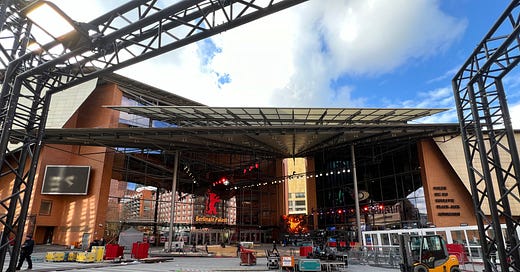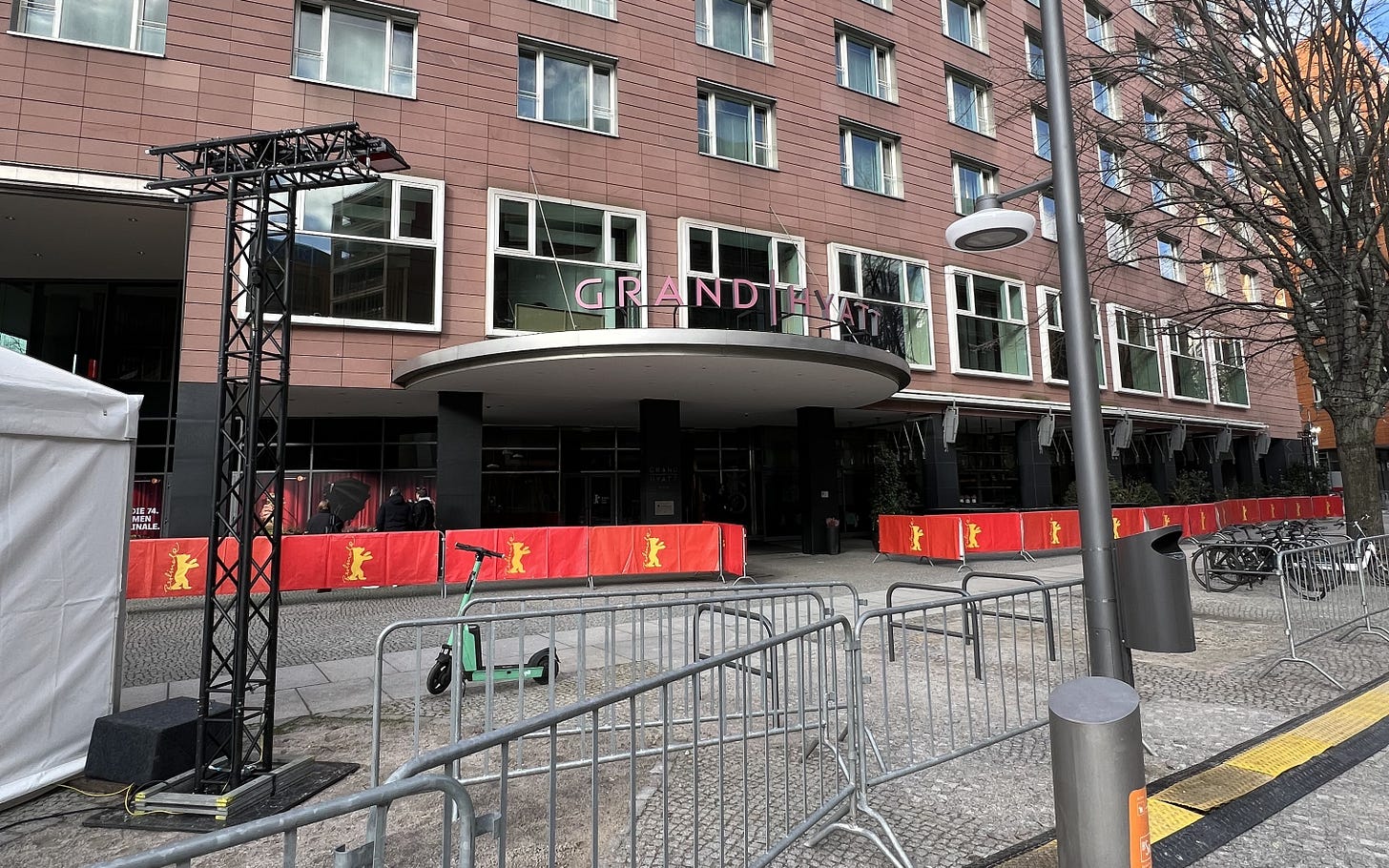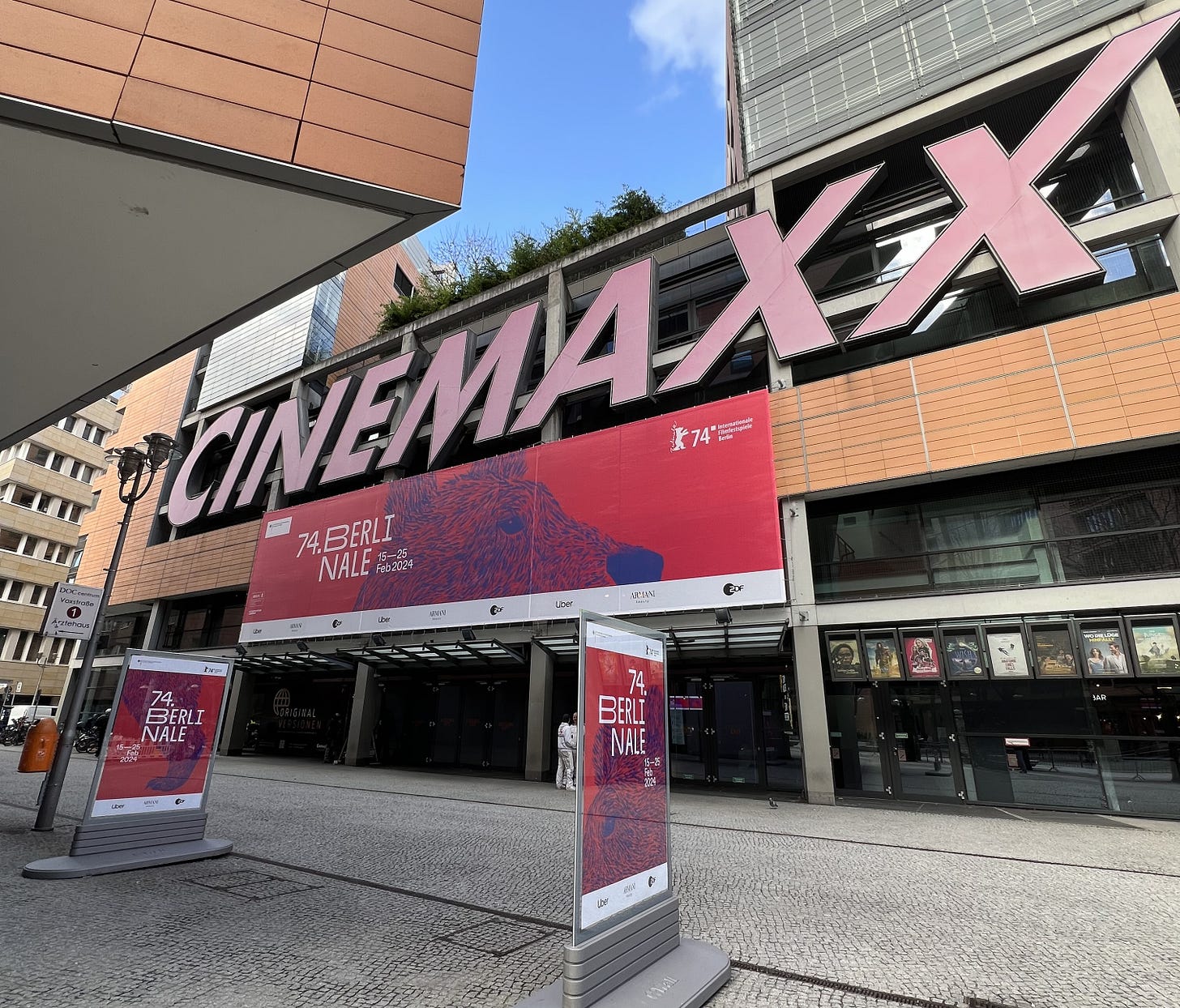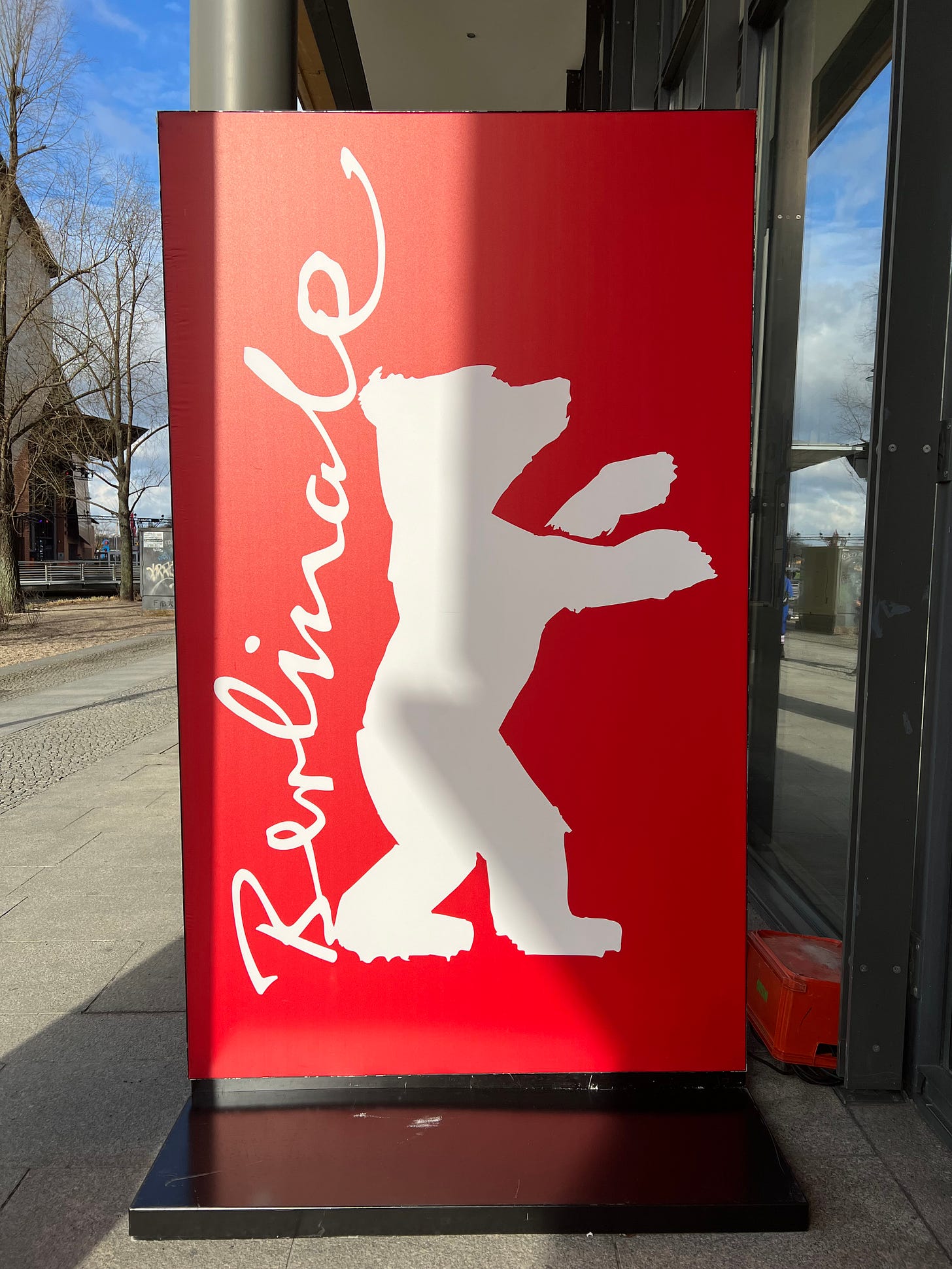Pre-Berlinale 2024 Controversies Highlight Societal Ills
Germany's Culture Minister cuts funding, artistic director ousted, AfD politicians invited then disinvited, and Berlinale workers demand a more vocal stand on Gaza from leadership.
Last year the Cannes Film Festival invited controversy, as is usual for them (as well as the French in general), by premiering Johnny Depp’s new costume drama fresh after being canceled from his very public trial. Then several months later the Venice Film Festival said hold my Aperol and premiered the newest films from Woody Allen and Roman Polanski. Although symbolic artistic/political protests are typical for the Cannes Croisette and Biennale art-world, the Berlinale (Berlin Film Festival) seems to be facing the same controversies that Germany/Berlin in general is experiencing, rather than from contentious artistic choices, ego-driven celeb squabbles, or “canceled” directors premiering their goods. The following pre-Berlinale coverage will cover the three main controversies leading up to the festival and provide some background/context.
Note: As Berlinale kicks off February 14th and lasts until the 25th, I will share what the festival has to offer, including reviews, festival coverage, and other scuttlebutt with these developing controversies. This will be my first time attending and I will bring with me the manic energy of a dog receiving a new chew tow. Be sure to Subscribe so that you receive these posts via e-mail for free. And if you’ve already done so, thanks! and spread the word.
Culture Minister Cuts Funding
Back in July the new German Culture Minister, Claudia Roth (Green Party), cut more than €2 million for the Berlinale. (About a third of the festival’s budget is funded through Germany’s culture ministry) This meant a third of the program would have to be cut, including entire sections. Then a month later, Roth insisted that the Berlinale needed only one festival director, so artist director Carlo Chatrian’s contract wasn’t renewed after promising that she would renew it. He cited concerns over not being able to have the freedom to curate the festival’s program under these conditions. Hundreds of famous directors and actors, including this year’s Honorary Golden Bear lifetime achievement recipient, Martin Scorsese, signed an open letter condemning Roth for her treatment of Chatrian and the prestigious international festival.
Roth’s decision was done (publicly) in part due to Covid restrictions having reduced previous festivals, major sponsors backing out, and streamers. But moreso because the Ukraine war and faltering economy is pushing for austerity in all corners. Germany is having its largest arms buildup since the nineteen-thirties, which will eat about ten percent of the total cultural funding budget in 2024. Roth and other politicians from across the political spectrum have called for Berlinale to be slimmer and for funds to be dispersed according to higher levels of artistic/political activity at the festival. Although Roth calls for protections of freedom in the arts/culture, she regularly cancels Russian and Eastern European cultural events and tried stopping Roger Waters from touring in Germany. Stefan Steinberg sums up Roth’s position: “The budgets for the arts and culture are to be slashed and subordinated to the war effort while dissident voices are silenced.”
Once the dust settled after this affair, attention shifted towards the Hollywood strikes, October 6, and the AfD, the latter two becoming a thorn in the Berlinale’s side.
AfD Politicians Disinvited
Hundreds protested the news that two AfD politicians were invited to the opening ceremony of the Berlinale. A far-right party that steadily grows each year while everyone else is declining, the AfD is essentially disinvited by default to any German socio-cultural gathering because of their anti-immigrant and conservative positions. (A Berlin city re-do election several days ago increased the percentage of AfD and CDU representation in the city government.) The protestors brought up Berlinale’s 2019 commitment against right-wing populism and atoning for the sins of their genocidal past; the AfD shouldn’t have access to institutions becoming a normalized aspect of society. So how to reconcile being against the far-right while also having them over for dinner and a movie?
The festival directors issued a statement defending the invitations along with their benevolent ruler Claudia Roth, who said that those in the German Bundestag who helped with the funding should be invited as this is a democracy where elected representatives are respected. The festival directors, who may or may not have made those statements under socio-financial duress via Roth, then decided several days later (just last week), to disinvite the politicians after “an intense discussion in the cultural sector, in the press and on social media as well as within the Berlinale team.”
It’s unclear what positions the festival directors, Roth, filmmakers, press, and even the AfD politicians should have taken from start to finish. Why invite them at all, given how hot blooded the anti-AfD blood runs in Germany today? And why claim to hold up the festival as a bastion for freedom of thought and politics but then carve it into a kind of safe-space?
Comparisons to Nazis is how much of the anti-AfD rhetoric is used to justify their disinvitations to German society at large, which seems to have only increased their popularity while the traffic light coalition (SPD, Greens, FDP) is stalling. If they want to keep up this rhetoric while also failing to address the economic concerns of Germans (inflation from energy-import concerns, which is mostly a self-inflicted wound after switching from Russian to American and shutting down nuclear energy, as well as funding wars in Ukraine and Gaza), then don’t be surprised when they keep winning elections. It’s one thing to endorse or share the political stage with a politician who shouldn’t be “platformed,” but it’s another entirely to invited two to a cultural event hosting hundreds of thousands of people.
This is all happening several weeks after the now-bogus Wannsee 2.0 conference was held, which was reportedly a meeting between conservative Germans about how to mass-deport non-Germans. We now know those events didn’t take place and was about something far less controversial, but that didn’t stop the many gigantic demonstrations taking place across Germany, the largest (150-300k people) occurring in Berlin only a couple of days before news broke about the Berlinale invitations. Although Roth had defended the invitations, the public outcry was too much for the festival directors, which they knew would only be a distraction to the bigger possible controversy: Israel v. Gaza.
The War in Gaza
Home to many Middle Easterners, Berlin is the largest spot for pro-Palestinian, anti-Israeli occupation sentiment in Germany. Despite being illegal to demonstrate against the war, many marches (and arrests) took place in Berlin before political pressure ended that demo-ban. Germany, aside from the USA, is going out of its way to support Israel financially and politically, much of this stemming from reparations for anti-Jewish events seventy years ago.
In their attempt to be more of a political festival regarding this issue, Berlinale is holding a “meeting place,” called “TinyHouse,” which for three days is an event where anyone “can have an open dialogue about the war in Israel and Gaza.” Nothing should go wrong here! And in diplomatic fashion, there is one Israeli film and one Palestinian film on the program in different categories. They hoped to make the festival a home for inclusion and everyone agreed, everyone supported their decision and they brought nominal peace among all artists politically. (If only the PR could have its way…)
Artists around the world recently issued a boycott of all German state-funded associations for their support of Israel’s destruction of Gaza and killing of Palestinian civilians. Two directors in the Forum Expanded film section withdrew from the festival citing this. Led by Annie Ernaux and other notable heavies, this may or may not have influenced a group of Berlinale workers to issue an open letter two days letter calling for the leadership to provide a stronger public statement on the war and a ceasefire. They also want a larger and more pronounced discussion among filmmakers and not some “TinyHouse,” whatever the hell that is. They’ll want vocal accountability and commitments, but haven’t issued any threats or warnings, so will/can anything actually be done, especially two days before the opening?
No matter the controversy, the festival directors are left in the shit position of being pulled politically and financially from all sides. They’re in a lose-lose situation whichever direction they go, for either going against something or too little in favor of something else. But in the end, all of these little controversies add attention to the festival, which is a place primarily for films to be bought and sold and viewed among producers and financiers while the red carpet distracts everybody.







